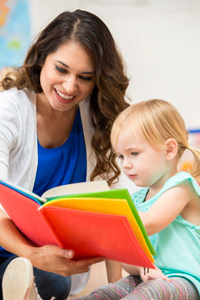What is the Early Years Foundation Stage?
The Early Years Foundation Stage (EYFS) is a part of the National Curriculum and it applies to all children aged under five in England. It protects young children’s welfare and sets out the areas of learning which should be covered.
If you'd like a PDF version of this page, simply click The EYFS PDF
 Children's education in state schools is governed by the National Curriculum, spanning key stages (KS1 to KS4) for ages 5 to 16. Yet, for preschool and reception-year children, the Early Years Foundation Stage (EYFS) takes precedence. This guide aims to provide comprehensive insights into the EYFS.
Children's education in state schools is governed by the National Curriculum, spanning key stages (KS1 to KS4) for ages 5 to 16. Yet, for preschool and reception-year children, the Early Years Foundation Stage (EYFS) takes precedence. This guide aims to provide comprehensive insights into the EYFS.
The EYFS, a Government framework, delineates learning areas and standards for children aged 5 and under. Care providers must engage in activities across seven specific learning areas, enabling monitoring and comparison of children's progress against desired levels.
LEARN ABOUT THE BENEFITS OF LEARNING THROUGH QUIZZES
While only care providers in England follow EYFS guidelines, those in Scotland, Wales, and Northern Ireland adhere to alternate standards set by their respective governments.
Which Care Providers Must Follow the Early Years Foundation Stage?
The EYFS applies to almost all preschool childcare providers and schools, with a few exceptions like short-term crèches and mother-and-toddler groups. All other preschool childcare providers in England and schools with attached nurseries/reception years must comply with the EYFS.
How Can I Verify a Preschool Childcare Provider?
Except for exempt cases, all preschool childcare providers in England must be registered with the Office for Standards in Education (Ofsted). Each provider receives a Unique Registration Number (URN) from Ofsted, which can be checked here for their latest inspection report. Learn more about Ofsted in our What is Ofsted? article.
Does the Early Years Foundation Stage Ensure Child Welfare?
The EYFS prioritizes child welfare, necessitating regular inspections to meet safety, security, and quality standards. This includes ensuring suitable equipment, staff security checks, and high-quality surroundings with access to outdoor play areas.
Learning Areas Covered by the Early Years Foundation Stage
Besides safeguarding welfare, the EYFS encompasses children's development and learning across seven areas:
- Communication and language
- Expressive art and design
- Literacy
- Mathematics
- Personal, social and emotional development
- Physical development
- Understanding the world
Later in this article we'll explore each area in-depth to understand the specific learning goals.
FIND OUT WHY KIDS LOVE OUR WEBSITE
Assessment of Early Years Foundation Stage Children
Children undergo two assessments during the EYFS. The first occurs between their 2nd and 3rd birthdays, evaluating strengths and areas of struggle. The second, post their 5th birthday, is teacher-led, assessing performance in the classroom. Results help plan activities for the next year, shared with the child's future Year 1 teacher and parents.
Monitoring Preschool Child Progress

Each preschool child has a 'key person' responsible for their needs, offering settling support, emotional assistance, progress monitoring, and communication with parents. Questions or concerns can be discussed with the key person, ensuring a supportive environment.
So, what is the Early Years Foundation Stage? It's a framework within the National Curriculum, applicable to all children under five in England. It outlines learning areas, standards, and safeguards young children's welfare.
The Early Years Foundation Stage (EYFS) is part of the National Curriculum and applies to all children aged under five in England.
Learning Areas in Detail
Communication and Language: Develop communication skills, listening, attention, understanding, and expressive abilities.
Expressive Arts and Design: Encourage imaginative play, sharing ideas, and exploring various activities beyond drawing or painting.
Literacy: Emphasize reading, writing, and phonics understanding, enabling children to comprehend and create simple words and sentences.
Mathematics: Focus on counting, basic calculations, number recognition, patterns, shapes, and understanding measurements.
Personal, Social and Emotional Development: Foster positive self-image, respect for others, cooperative play, sensitivity, and adherence to rules.
Physical Development: Enhance control, coordination, and movement, involving practice with tools and promoting awareness of health and exercise.
Understanding the World: Introduce concepts of science, geography, history, and technology, encouraging discussions about differences and similarities.
Preschool Child Assessment
Children undergo assessments at 2-3 years and after their 5th birthday. The results help plan future activities, shared with the Year 1 teacher and parents to facilitate understanding and support.
Connect with Your Child's Key Person
Assigning a 'key person' for each child ensures individualized support, progress monitoring, and communication with parents, creating a supportive learning environment.
All in all, the Early Years Foundation Stage provides the foundation for a child's future academic career.
All in all, the Early Years Foundation Stage provides the foundation for a child's future academic career.
Explore Our Knowledge Bank, a valuable education resource answering parents' questions. Find articles on various topics such as bullying, substance abuse, and child confidence. The Knowledge Bank equips parents with essential guidance and advice!



